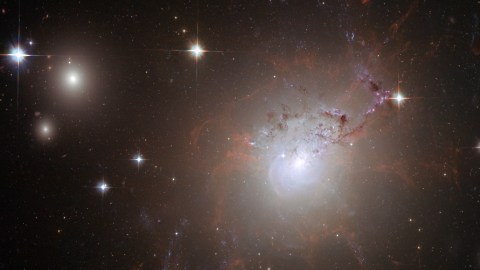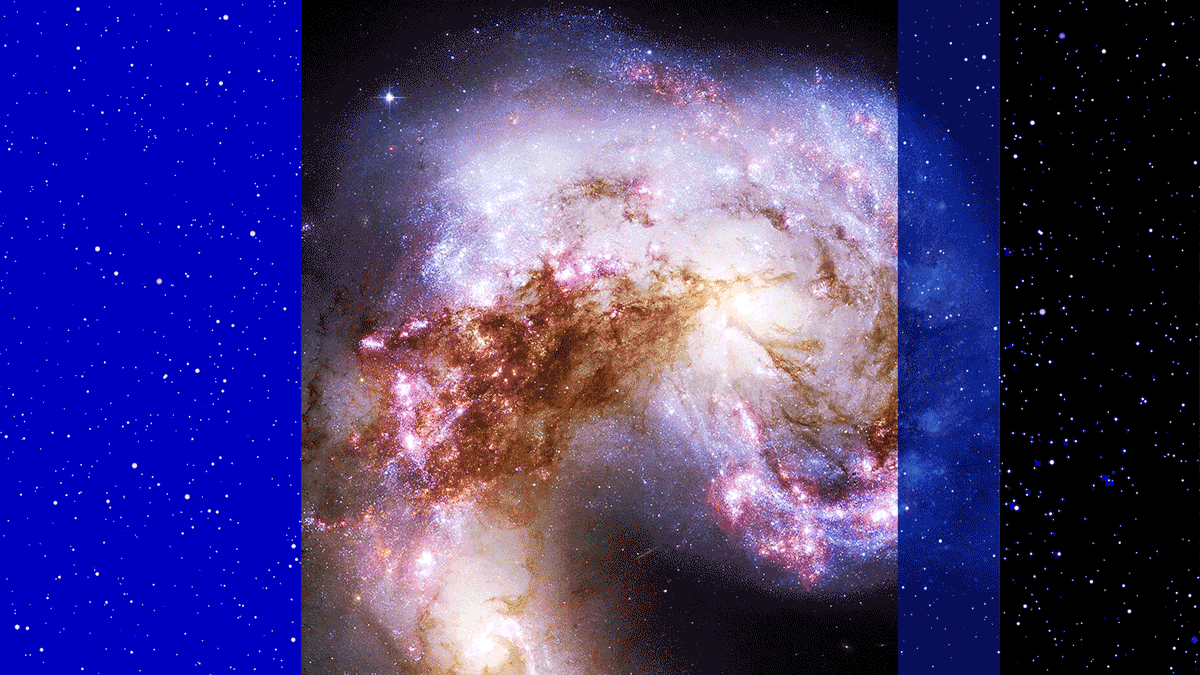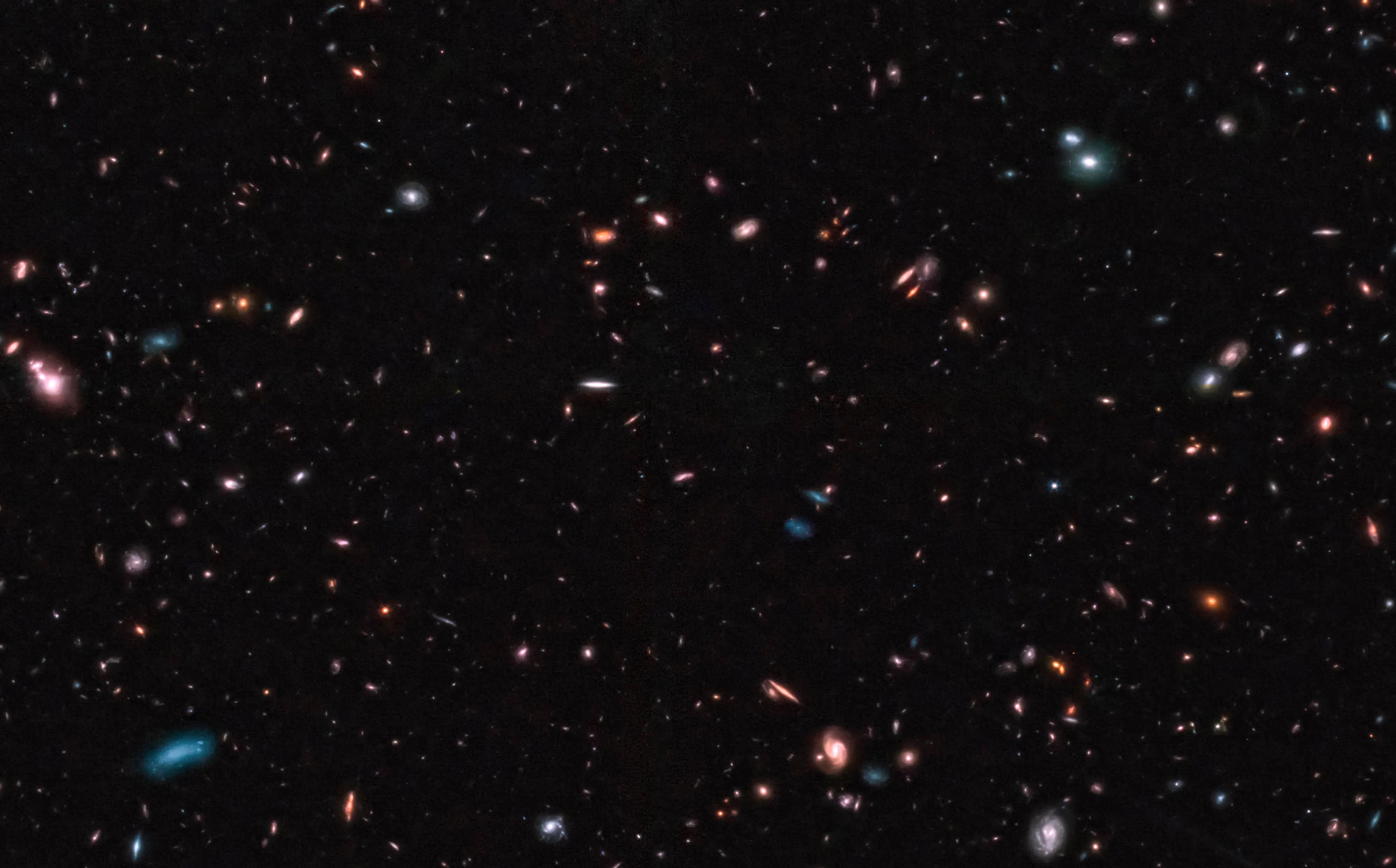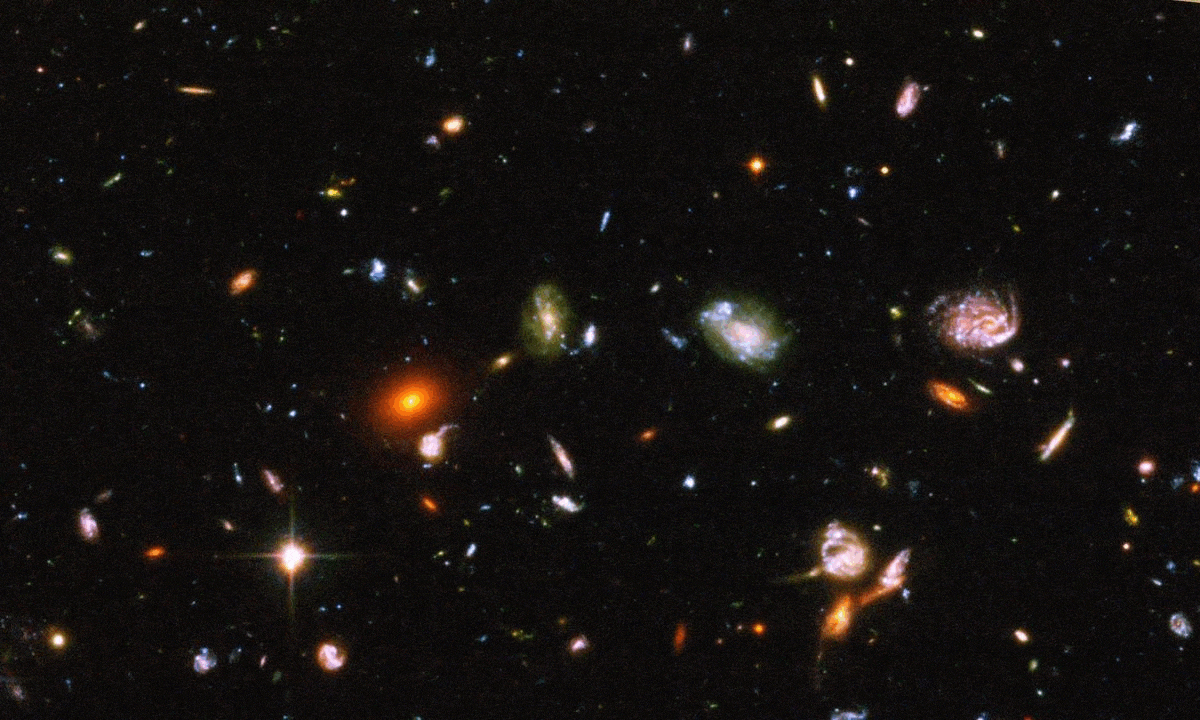The Universe Is Dying. Now Scientists Know How Slowly.

All good things must come to an end, as the old adage goes. Assuming you consider the entirety of the universe to be a good thing — and I personally find it pretty sweet — the adage rings true again. The universe is dying. It’s dying all around us.
Of course, this isn’t news by any means. We’ve known for quite a while about stuff like entropy, the heat-death of the universe, and other pleasant dinner topics. What’s notable now is that scientists from the International Centre for Radio Astronomy Research (ICRAR), part of the Galaxy and Mass Assembly (GAMA) project, have precisely measured our universe’s decline for the very first time:
“An international team of astronomers studying 200,000 galaxies has measured the energy generated within a large portion of space more precisely than ever before, discovering that it’s only half what it was 2 billion years ago and fading — the universe is slowly dying.
Researchers … used seven of the world’s most powerful telescopes to observe galaxies at 21 different wavelengths from the far ultraviolet to the far infrared …
The survey data, released to astronomers around the world, includes 200,000 galaxies each measured at 21 wavelengths from the ultraviolet to the far infrared and will help scientists better understand how different types of galaxies form.”
ICRAR professor Simon Driver, who must have been itching to employ some figurative language after writing so many scientific papers, summed up the findings like this:
“The universe is fated to decline from here on in, like an old age that lasts forever. The universe has basically plonked itself down on the sofa, pulled up a blanket, and is about to nod off for an eternal doze.”
If this sort of news compels you toward panic, simmer down. The universe is like a giant cosmic Department of Motor Vehicles; everything runs at molasses speed. At some point, our universe will become a cold, dark place without any sign of life or energy, though that’s not going to be for billions upon billions of years. By then the whole of humanity is likely to have already been extinguished itself due to some existential risk coupled with our own collective stupidity.
As Jason Major writes at iO9, our own solar system will have already undergone massive shifts leaving Earth completely uninhabitable. That means we’ll need to have gotten off this rock and explored the galaxy by then, though that’s a problem for our progeny to solve at this point. In the event that we do become a spacefaring species capable of traveling through space, we’ll at least have until the lights go off in the rest of the universe to continue farting around.
It’s somewhat uncomfortable to think about our entire civilization’s inevitable memento mori moment. The human race is better equipped than any prior lifeform to extend its existence beyond what nature will allow. Still, as with everything in the universe, we have a set expiration date; there will come a point when all of life simply vanishes into dust.
If that makes you feel down, watch the visualization below to take a pretty neat tour of the universe. It made me feel better… a little:
Read more at ICRAR
Image credit: Handout / Getty Images





